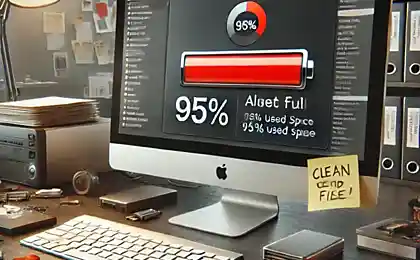988
How long can store CDs without loss of information?
Many organizations around the world, both public and private, all kinds of files stored on CD-ROM. And nothing about the number of home, family archives generally defies calculation. One of the most important criteria when archiving is the longevity of the media. In the heyday of CD and DVD for their use as an archive means many bet impressed by the assurances of manufacturers that data will be stored for at least several decades. Separate series of products even positioned as archive that is reflected in their price.
A few years ago we started getting louder voices, that the life of a CD greatly exaggerated. Since the start of mass production of this type of support in 1982 has been more than 30 years, although the bulk of the archival material stored on disk, issued much later. Splash using the CD for archiving fell on 90 years. Nevertheless, archivists around the world have already started to face the problem of data loss.
In the archives of various countries there are cases of degradation of the reflective layer CD, which contains the recorded information. And not only archivists faced with this phenomenon, where it occurs more frequently with disks that are stored in hot environments (such as a car) or are often used to read information from them.
So far, the cause of this phenomenon is not clear. Library of Congress archive experts believe that the increase in temperature and ambient relative humidity accelerate the flow of certain chemical processes. And for this slow process there are used storage at controlled temperature and humidity. But there is no accurate information, under what parameters can provide the greatest longevity of the CD, try to determine experimentally.
In addition, there can be no such thing as "life expectancy" CD-ROM, and because of the "average" CD-ROM does not exist - the quality of materials used by manufacturers around the world during these 30 years, has a huge spread . Therefore, part of the CD hits another disease, the so-called «CD-rot" or "bronzing". This is reflected in the destruction layer of clear plastic that protects the reflective layer, until his exposure. And under the influence of oxygen, it gets dim. A conservation drives impossible because it is a huge variety of quality materials used in production.
Now the Library of Congress archive contains over 400,000 CD, mostly with musical notes. Lots of information in the early 90's was moved to discs microfilm. Now it is already regarded as a rash step, although it had been believed that digital technology default robust and durable. And in terms of budget cuts, archivists do not hope that the information will be able to move to another, more reliable type of media.
Now CDs can already be considered a dying technology. The cheapness of external hard drives and flash drives, the rapid growth of cloud storage and mobile devices, as well as the notorious mp3 practically buried this technology. Massively closed music stores, most computers have offered no optical drive. However, it is more CD and DVD are very widely used, and will be used quite a few years, gradually wearing. But, according to archivists, the best way to get rid of your music collection on CD - leave it in the car for the summer, how come a lot of car owners. Now, many archives have begun to store information on servers, but it will bring in the future, their, as yet unknown, problems.
Source: habrahabr.ru/post/234013/
mCube: miniature accelerometer of a new type that can turn into a fitness tracker even clothing
What happens if I do not go to work at nine in the morning























